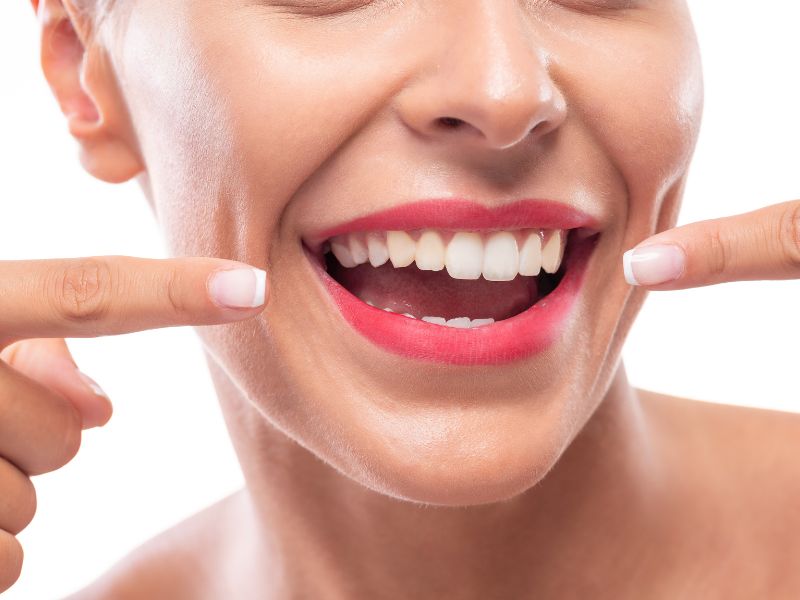
There’s a common belief that a bright, white smile is a sure sign of good oral health. After all, white teeth are often associated with cleanliness, youth, and vitality. But is this assumption accurate? Does the color of your teeth truly reflect how healthy they are?
In this article, we’ll break down the relationship between teeth whiteness and health, uncover some popular oral health myths, and share the teeth whitening facts that everyone should know.
White Teeth ≠ Healthy Teeth: Understanding the Difference
While a sparkling smile looks great, white teeth do not automatically mean healthy teeth. Tooth color is influenced by a variety of factors—some cosmetic, others structural. Natural tooth enamel varies from person to person, with shades ranging from pearly white to light grey or even slightly yellow. Genetics play a significant role in determining your natural tooth color.
What truly matters for oral health is the condition of your teeth and gums. A person with slightly yellow teeth but strong enamel, no cavities, and healthy gums is in much better oral health than someone with bleached-white teeth suffering from untreated decay or gum disease.
In short, whiteness is cosmetic. Health is functional and biological.
Why Are Some Healthy Teeth Not Pure White?
Tooth enamel, the outermost layer of your teeth, is naturally translucent. Beneath it lies dentin, a yellowish tissue that gives teeth their underlying color. As we age, enamel wears down, making the dentin more visible and causing teeth to appear darker or more yellow. This change isn’t necessarily a sign of poor health.
Certain lifestyle habits, such as consuming coffee, tea, red wine, or tobacco, can also cause external stains without affecting the structural integrity of your teeth. In these cases, the teeth may still be healthy, despite a lack of brightness.
The Role of Teeth Whitening in Oral Health
While teeth whitening doesn’t improve oral health directly, it can have an indirect benefit. Many people who invest in whitening treatments become more motivated to maintain good oral hygiene habits to preserve their bright smile. Brushing, flossing, and regular dental check-ups are crucial for keeping both the appearance and health of your teeth in top condition.
It’s important to note that professional whitening treatments, supervised by a dentist, are safer and more effective than DIY methods. A dentist can assess whether your stains are surface-level (extrinsic) or deeper within the tooth (intrinsic) and recommend the right approach.
Can You Have White Teeth That Are Unhealthy?
Absolutely. Teeth that appear white can still harbor cavities, decay, or gum disease. Problems like infections, weakened enamel, or bone loss aren’t visible in a mirror. Regular dental exams, X-rays, and professional cleanings are essential for detecting these hidden issues, regardless of tooth color.
The Takeaway A Balanced Perspective
Having white teeth can boost your confidence and enhance your smile’s appearance, but it’s not a reliable indicator of oral health. True dental health is determined by strong enamel, cavity-free teeth, healthy gums, and proper alignment, not just the color of your teeth.
Investing in teeth whitening for aesthetic reasons is perfectly fine, as long as you understand it’s a cosmetic enhancement, not a health treatment.
How North Shore Smile Can Help
At North Shore Smile, we offer professional whitening services and comprehensive oral health care. Our approach ensures that your teeth are not only white but also healthy and strong. We educate our patients on the teeth whitening facts and help debunk the myths that white equals healthy. With regular check-ups and personalized care, we help you achieve a beautiful, healthy smile from the inside out.
Book your appointment with North Shore Smile today to learn more about safe teeth whitening and maintaining excellent oral health. Let’s keep your smile bright and truly healthy.
